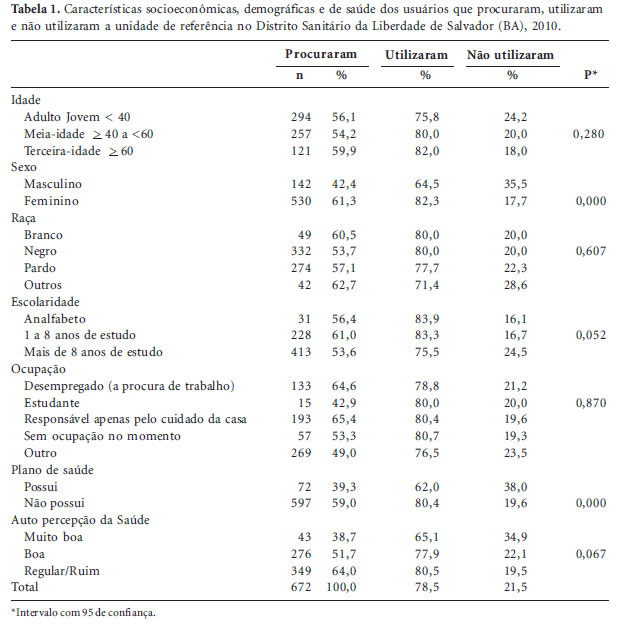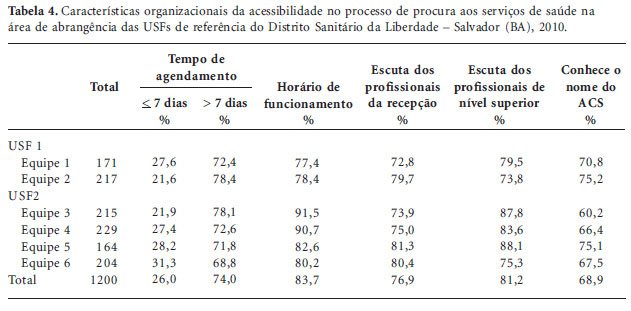The demand for and use of health services results from a set of determinants that include socioeconomic, demographic and health characteristics and organization of the supply of services. The scope of this paper is to define access to and use of the health services in two Family Health Units (FHUs) of the sanitary district of Liberdade, establishing the pattern of use and identifying factors related to socio-organizational and geographical access. A cross-sectional population-based survey was conducted on individuals aged between 20 and 75 resident in the area covered by the two FHUs. Access to health services was analyzed based on the socio-organizational and geographic characteristics and according to the demand for medical appointments. Over 50% of respondents sought the service of FHUs and of these 78.7% reported attending the appointment. With respect to organizational access, problems were encountered, such as long waiting times for consultation. Geographical barriers were ascertained in the use of FHUs, but these did not prevent the realization of medical consultation. The use of FHUs was higher among people with lower socioeconomic status.
Access to Health Services; Utilization; Family health strategy





